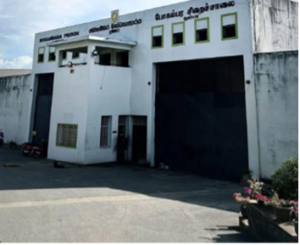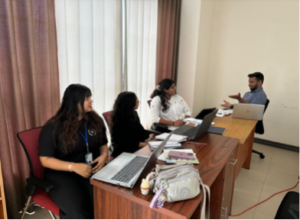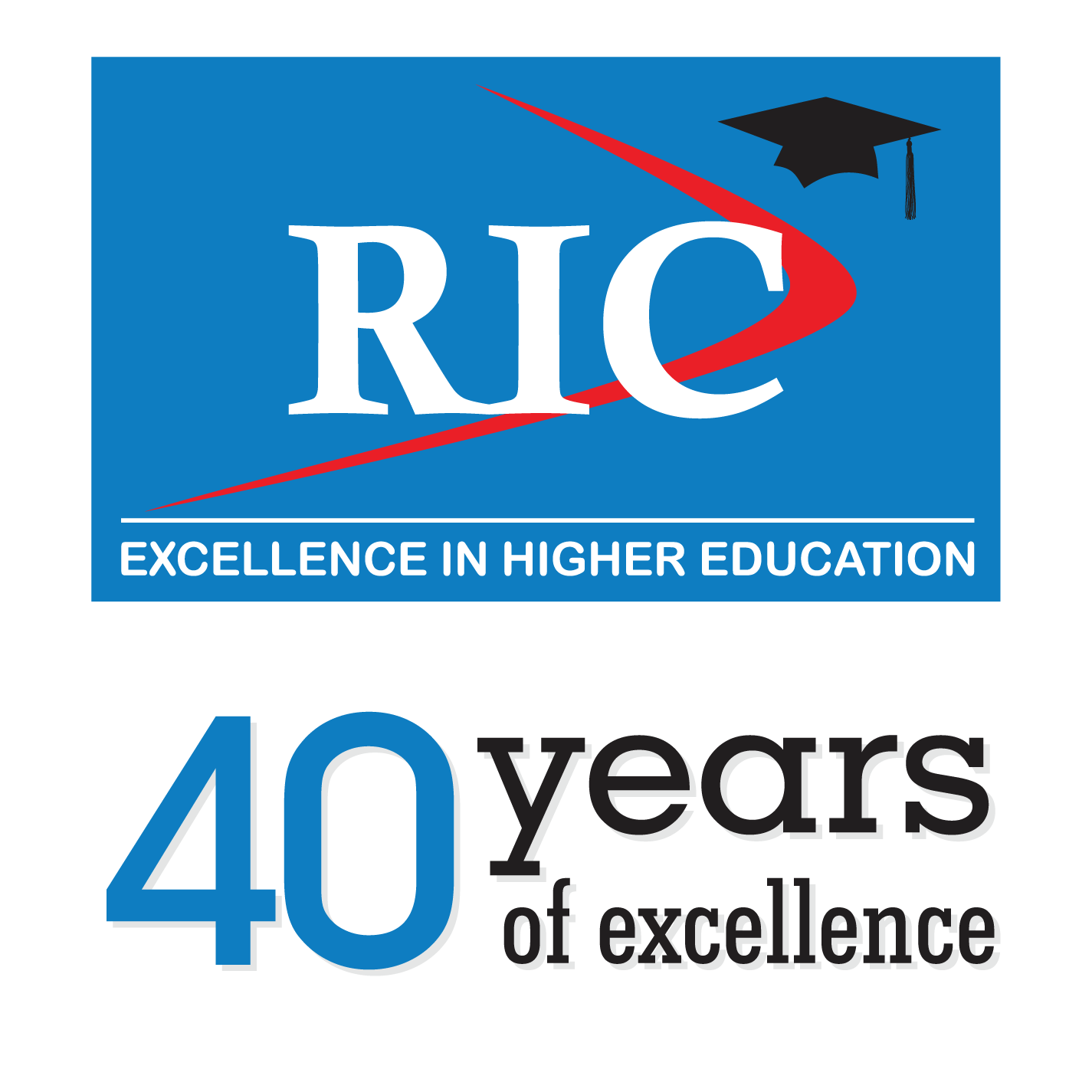Where Confidence Met Culture — My University Story
Thahirah Khasim
BSc (Hons) Psychology – Final Year Student
The University of London BSc (Hons) Psychology Programme at the Royal Institute Campus (RIC) offers more than just an academic qualification. It cultivates personal growth, professional identity and a comprehensive understanding of human experience. The programme is distinguished by its strong integration of scientific research and practical application. From the outset, we are taught to think critically and analytically, engaging with core research methodologies, experimental design, and data integration, allowing us to not only understand psychological theory but to contribute to it through meaningful evidence-based inquiry.
Moreover, RIC ensures that psychology is not confined to the pages of a textbook. Through a range of experiential learning opportunities, including field visits, outreach projects, and clinical internships, we are exposed to the lived realities of psychological disorders. This provides a dynamic and holistic programme that encourages students to move beyond passive learning in order to engage with the complexities of psychological practice.
From Theory to Practice: A Curriculum that Connects
The academic structure of the programme is designed not only to deliver core psychological knowledge but also to promote intellectual curiosity and interdisciplinary application. Modules such as Social Psychology, Forensic Psychology, Occupational Psychology, and Mental Health Around the World provide students with a broad and diverse foundation, while also encouraging them to examine human behaviour from multiple theoretical and cultural perspectives.
What makes the curriculum effective is its focus on real-world application. We are encouraged to form connections between what is learnt in lectures to wider social and ethical issues. Assignments often go beyond traditional essays, incorporating reflective journals, case analyses and practical research that requires students to apply psychological concepts in context. Therefore, we not only gain theoretical fluency but also develop skills in reasoning, communication, and ethical decision-making, which are essential across both academic and professional domains.
Minds in Motion: Taking Psychology Beyond the Classroom
The Mind in Motion Outreach Project is one of the most distinctive components of the RIC psychology experience. This initiative actively bridges classroom learning with community engagement by encouraging students to work with marginalised groups and vulnerable populations.
For instance, the “Voices Unheard” workshop, held in collaboration with the Diversity and Solidarity Trust (DAST), enabled us to interact with street-based sex workers. This opportunity allowed us to listen to their lived experiences and develop a deeper understanding of the stigma, legal discrimination, and psychological trauma they endure. These discussions connected directly with modules such as Clinical Psychology and Gender and Mental Health, turning abstract theories of trauma, marginalisation and resilience into real, lived realities.
Another significant experience involved visiting the National Institute of Mental Health (NIMH), where we met patients diagnosed with schizophrenia and other psychotic conditions. This visit prompted reflection on the ethical and human rights issues present in psychiatric care, facilitating a deeper understanding of the complexities of mental health.

Immersive Journeys: Lessons from Workshops and Internships
RIC allows us to participate in a range of immersive workshops designed to challenge assumptions and develop empathy. One notable session with the National Transgender Network allowed transgender individuals to share their journeys and the psychological impact of navigating discrimination and identity. The experiences shared deepened our understanding of the issues surrounding access to healthcare and promoted the importance of respecting individuals regardless of personal beliefs and societal bias. 
The programme also facilitates internships in hospitals, rehabilitation centres, and NGOs where students apply theoretical knowledge to real-world clinical and community settings. During one such placement, I interned at a hospital where I had the opportunity to observe patients diagnosed with psychotic disorders. The experiences revealed the diversity with which these conditions manifest, each case shaped by individual, social and cultural influences. Equally valuable was the insight I gained on the treatment approaches used within Sri Lanka, underscoring the need for culturally sensitive, ethical and context-specific mental healthcare.
These internships do more than build academic connections; they shape professional attitudes, enhance observation skills, and introduce students to ethical dilemmas that demand real consideration.
Beyond Books: Culture, Clubs, and Confidence
RIC’s academic experience is further enriched by an active student culture, supported in part by the Psychology Club, which the Psychology Department introduced. Since its formation, the club has provided students with opportunities to participate in a variety of collaborative and socially meaningful projects.
These have included English as a Second Language (ESL) sessions for students needing language support, fundraisers to assist with outreach activities, and module introductory sessions for new students entering the programme. These sessions help incoming students understand what to expect from the degree, how to approach their coursework, and how to navigate the academic structure more confidently.
In addition to involvement in the Psychology Club, many students also take part in other societies and clubs at RIC, ranging from cultural and arts-based societies to sports, volunteering, and academic interest groups. These wider opportunities allow psychology students to engage with the broader university community, explore different interests, and develop soft skills such as teamwork, time management, and communication.


Learning with Purpose: Education That Matters
In a global context where higher education can often feel disconnected from the realities of human experience, the BSc Psychology programme at RIC represents a more integrated and reflective model. It prepares students not only for careers in psychology or postgraduate study, but for a lifetime of critical thinking, ethical practice, and social engagement.
By blending research skills with applied learning and theory with real-world context, the programme positions psychology as both a scientific and deeply human discipline. It encourages students to think beyond simply acquiring knowledge by considering how to apply what they’ve learned and understanding the impact it can have.
Reflections on a Transformative Journey
For prospective students considering a psychology degree in Sri Lanka or looking for an alternative to studying psychology abroad, the BSc Psychology programme at RIC offers a compelling balance of academic depth, research training, and hands-on experience. It encourages students to examine the world more carefully, engage more empathetically, and lead more confidently.
And while the textbooks and theories provide the structure, it’s the lived experiences, the people we meet, and the challenges we confront that shape who we become.

